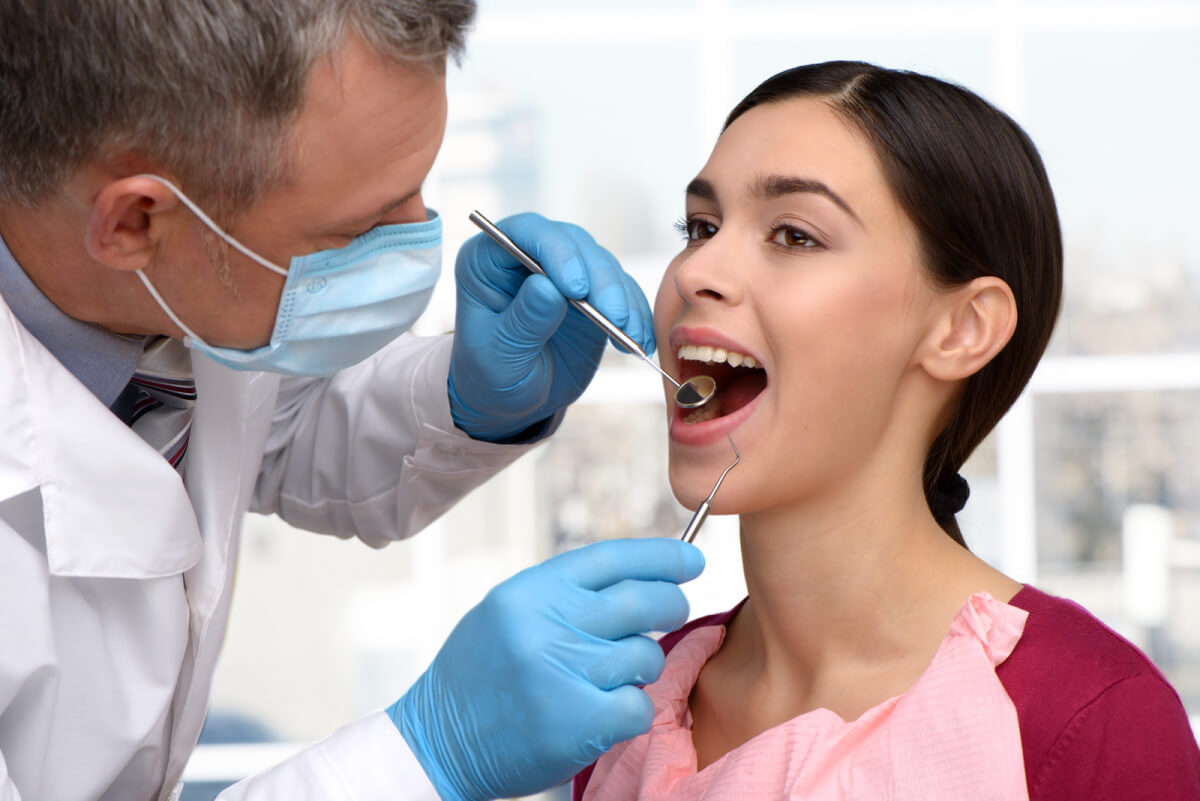Millions of individuals are affected by oral cancer each year, making it a serious worldwide health issue. The good news is that successful treatment outcomes greatly depend on early identification. The possibility of a full recovery is increased by early detection of oral cancer through proactive measures like oral cancer screening.
Let’s explore what an oral cancer screening entails and discuss effective prevention strategies to safeguard your oral health.
What is Oral Cancer Screening?
A complete inspection of the mouth, including the lips, tongue, gums, throat, and other oral tissues, is required for oral cancer screening. The goal of this procedure is to locate any anomalous growths, lesions, or suspicious regions that could be cancerous or precancerous. The screening procedure can be carried out by our dentist in Edina or other oral healthcare specialists during a regular dental check-up and is quick and painless.
Methods Used in Oral Cancer Screening
The medical expert often does the following procedures during an oral cancer screening:
Visual Examination: The dentist will visually inspect your mouth in order to look for any abnormalities, such as red or white spots, swelling, or sores that have not healed.
Physical Examination: The lymph nodes in your neck and jaw may be palpated by the dentist to look for any symptoms of soreness or swelling.
Use of Specialized Tools: To find unusual tissues that might not be visible to the naked eye, some dentists may use extra instruments like a light and mirror or a portable gadget called a VELscope.
Additional Diagnostic Procedures
Additional diagnostic testing may be advised if any concerning lesions or irregularities are found during the oral cancer screening. These can include:
Biopsy: To find out if cancer cells are present, a tiny tissue sample is removed from the afflicted region and sent for laboratory examination.
Imaging tests: To diagnose cancer’s extent and determine the best course of treatment, imaging procedures including X-rays, CT scans, and MRI scans can be used.
Signs and Symptoms of Oral Cancer
The medical practitioner performing the oral cancer screening will keep an eye out for the following symptoms and signs:
- Red and white patches.
- Sores and ulcers.
- Lumps or thickening.
- Difficulty in swallowing and speaking.
- Changes in voice.
- Frequent numbness and pain.
Preventing Oral Cancer
Oral cancer is a type of cancer that can be potentially life-threatening if not detected and treated early. There are a number of preventative steps you can take to reduce the potential of getting oral cancer, even while certain risk factors, including genetics and age, are out of your control.
Here are some essential strategies for preventing oral cancer:
Avoid Tobacco and Alcohol
The risk of oral cancer is greatly increased by tobacco usage, which includes chewing tobacco as well as smoking cigarettes, cigars, or pipes. Similarly to this, consuming too much alcohol is strongly associated with mouth cancer. Your risk of oral cancer can be significantly lowered by quitting smoking and consuming less alcohol.
Practice Good Oral Hygiene
For overall oral health and to help avoid a number of oral disorders, including oral cancer, it is essential to practice effective oral hygiene and visit a professional for dental cleanings and examinations near you. Furthermore, be sure to:
- Brush your teeth at least twice a day with fluoride toothpaste.
- Use an antiseptic mouthwash to rinse your mouth and kill bacteria.
- Floss daily to remove plaque and food particles from between your teeth.
Limit Sun Exposure and Use Sun Protection
Long-term exposure to the sun’s ultraviolet (UV) radiation can raise your chance of developing lip cancer. Protect your lips by:
- Wearing a broad-brimmed hat to shade your face and lips.
- Applying lip balm or sunscreen with a high SPF specifically designed for lips.
Get Vaccinated Against HPV
The human papillomavirus (HPV) has been associated with several strains of mouth cancer. The chance of getting mouth cancer can be considerably decreased by receiving an HPV vaccination. Consult with your healthcare provider to determine if the HPV vaccine is appropriate for you or your children.
Eat a Healthy Diet
A healthy diet that emphasizes fruits and vegetables can reduce the chance of oral cancer development in addition to being beneficial to your overall wellness. Eat the following foods as part of your diet:
- Consume a variety of colorful fruits and vegetables, as they are packed with antioxidants that help protect against cancer.
- Limit processed foods, sugary snacks, and sugary drinks, as they contribute to poor oral health.
- Include cruciferous vegetables such as broccoli, cauliflower, and cabbage, as they contain compounds that may help fight cancer cells.
Visit a Dentist Near You Regularly
For maintaining excellent oral health and spotting any early indications of oral cancer, routine dental exams are essential. As part of your routine checkup, your dentist will check for oral cancer, and depending on the state of your dental health, they can offer the best recommendations.
Discover Effective Oral Cancer Screenings at Our Clinic
If you are looking for comprehensive and reliable oral cancer screenings, consider visiting 44th Street Dental. We prioritize your oral health and offer thorough examinations to detect any signs of oral cancer at an early stage. Our experienced and caring team of dental professionals is trained to perform detailed visual and physical examinations, utilizing the latest techniques and tools to ensure accurate screenings. We also offer dental cleanings and examinations in Edina to prevent any dental health issues.
Schedule your appointment today and take a proactive step toward preventing oral cancer.

